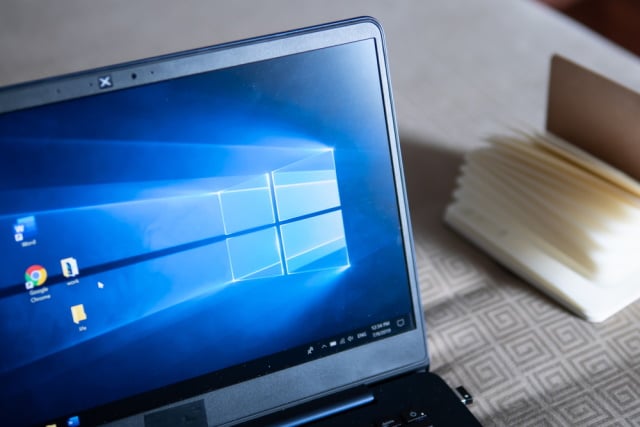Microsoft releases KB5007253 update to fix MSI issues and yet more printer problems in Windows

It is the time of the month that sees Microsoft releasing preview versions of upcoming updates for Windows, and this is precisely what the company has done with the optional KB5007253 Preview cumulative update for Windows 10.
Available for Windows 10 versions 2004, 20H2, 21H1 and 21H2, this update addresses 0x000006e4, 0x0000007c and 0x00000709 errors associated with networking printing. It also includes a fix for the Microsoft Installer (MSI) issue that was causing problems with Kaspersky apps, as well as fixing a laundry list of other problems.
See also:
- Zero-day vulnerability could give an attacker admin access in Windows 11 and older
- How to view saved Wi-Fi passwords in Windows 11
- You can now download a free Windows 11 Enterprise virtual machine from Microsoft
The KB5007253 update preview is a significant patch; while it does not address any security-related issues, the number of fixes it includes is extensive. This is great news for anyone who has been experiencing problems with Windows 10, but it is an update that will be particularly welcomed by anyone plagued by yet more printing problems or the more recent Microsoft Installer problems.
Microsoft shares the fairly substantial full list of fixes included in the update:
- Addresses an issue that affects the opening of the SearchFilterHost.exe process.
- Addresses an issue that causessearchindexer.exe to keep handles to the per user search database in the path below after you sign out: “C:\Users\username\AppData\Roaming\Microsoft\Search\Data\Applications\<SID>\” As a result, searchindexer.exe stops working and duplicate profile names are created.
- Adds support for the cancellation of daylight savings time for the Republic of Fiji for 2021.
- Addresses an issue that prevents the enrollment status page (ESP) from displaying the error message or remediation options after a failure.
- Adds the –cd argument to wsl.exe to specify a Windows or Linux path as a starting directory for Windows Subsystem for Linux (WSL).
- Addresses an issue that fails to apply machine Group Policy objects automatically at startup or in the background to devices on a domain that have certain processors.
- Adds the option to configure an Internet Protocol version 4 (IPv4) maximum transmission unit (MTU) that is less than 576 bytes on an interface.
- Addresses an issue that fails to provide an event description for the System Center - Operations Manager.
- Addresses an issue that incorrectly renders some variable fonts.
- Addresses an issue that might cause the 32-bit version of Microsoft Excel to stop working on devices that have certain processors when you export to PDF.
- Addresses an issue that displays glyphs at the wrong angle when you use the Meiryo UI font and other vertical fonts. These fonts are frequently used in Japan, China, or other countries in Asia.
- Enables onunload events to create pop-up windows in Microsoft Edge Internet Explorer mode
- Addresses an issue that affects predictive pre-rendering in Microsoft Edge Internet Explorer mode
- Addresses an issue that causes Internet Explorer to stop working.
- Addresses a known issue that causes error codes 0x000006e4, 0x0000007c, or 0x00000709 when connecting to a remote printer that is shared on a Windows print server.
- Addresses an issue that causes Internet Explorer to stop working when using the Input Method Editor (IME) to insert elements.
- Addresses an issue that causes the Settings page to unexpectedly close after you uninstall a font.
- Addresses an issue that affects the UI for renaming files when using folder view in File Explorer. The UI fails to properly handle inline composition when using the new Japanese IME.
- Addresses a memory leak in ctfmon.exe that occurs when you switch between different edit clients.
- Addresses an issue that turns off screen capture and recording functionalities on the Windows Game Bar because of a service failure.
- Addresses an issue that might cause the return value of GetCommandLineA() to be lowercase in some developer scenarios.
- Addresses an issue that might cause the decryption of a file that is on a remote server to fail. This issue occurs when using the Encrypted File System (EFS) on the remote server and the error message is, “ERROR_DECRYPTION_FAILED”.
- Addresses an issue that prevents you from enabling BitLocker on a thinly provisioned virtual machine (VM). The error is “A device attached to the system is not functioning” and the system logs, “STATUS_UNSUCCESSFUL”.
- Addresses an issue that causes Windows Defender Application Control to incorrectly compare two file version numbers.
- Enables credentials for Azure Active Directory (Azure AD) Active Directory Federation Services (ADFS) users in Quick Assist.
- Addresses an issue that sometimes prevents Quick Assist users from using full screen view after they start a remote assistance session.
- Addresses an issue that prevents the applications that you use often from appearing on the Start menu and prevents you from configuring them to appear on the Start menu using a Group Policy.
- Addresses an issue that causes the syncing of desktop settings to fail when you use the built-in User Experience Virtualization (UE-V) template.
- Addresses an issue that prevents Failover Clustering from updating Domain Name Server (DNS) records.
- Addresses an issue that prevents your device from starting up, and it becomes unresponsive because of licensing API calls.
- Addresses an issue that might affect devices that use Windows Hello for Business and are joined to Azure Active Directory (AD). These devices might experience issues when they access on-premises resources, such as file shares or websites.
- Addresses a known issue that might prevent apps, such as Kaspersky apps, from opening after you attempt to repair or update the apps using the Microsoft Installer (MSI).
You can download the KB5007253 update from the Microsoft Update Catalog, or by searching for optional updates using Windows Update.
Image credit: Wachiwit / Shutterstock
